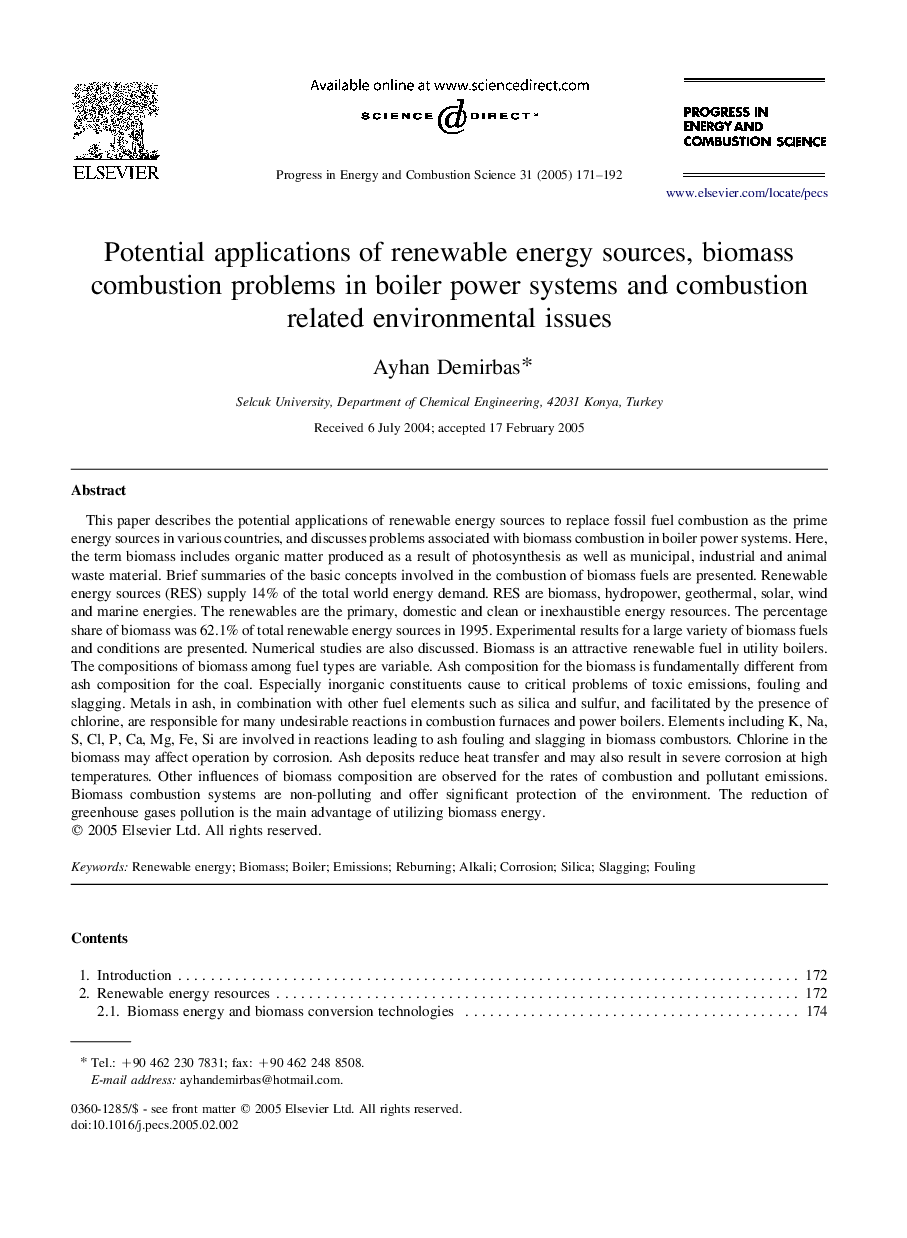| کد مقاله | کد نشریه | سال انتشار | مقاله انگلیسی | نسخه تمام متن |
|---|---|---|---|---|
| 10281663 | 466388 | 2005 | 22 صفحه PDF | دانلود رایگان |
عنوان انگلیسی مقاله ISI
Potential applications of renewable energy sources, biomass combustion problems in boiler power systems and combustion related environmental issues
دانلود مقاله + سفارش ترجمه
دانلود مقاله ISI انگلیسی
رایگان برای ایرانیان
کلمات کلیدی
موضوعات مرتبط
مهندسی و علوم پایه
مهندسی شیمی
مهندسی شیمی (عمومی)
پیش نمایش صفحه اول مقاله

چکیده انگلیسی
This paper describes the potential applications of renewable energy sources to replace fossil fuel combustion as the prime energy sources in various countries, and discusses problems associated with biomass combustion in boiler power systems. Here, the term biomass includes organic matter produced as a result of photosynthesis as well as municipal, industrial and animal waste material. Brief summaries of the basic concepts involved in the combustion of biomass fuels are presented. Renewable energy sources (RES) supply 14% of the total world energy demand. RES are biomass, hydropower, geothermal, solar, wind and marine energies. The renewables are the primary, domestic and clean or inexhaustible energy resources. The percentage share of biomass was 62.1% of total renewable energy sources in 1995. Experimental results for a large variety of biomass fuels and conditions are presented. Numerical studies are also discussed. Biomass is an attractive renewable fuel in utility boilers. The compositions of biomass among fuel types are variable. Ash composition for the biomass is fundamentally different from ash composition for the coal. Especially inorganic constituents cause to critical problems of toxic emissions, fouling and slagging. Metals in ash, in combination with other fuel elements such as silica and sulfur, and facilitated by the presence of chlorine, are responsible for many undesirable reactions in combustion furnaces and power boilers. Elements including K, Na, S, Cl, P, Ca, Mg, Fe, Si are involved in reactions leading to ash fouling and slagging in biomass combustors. Chlorine in the biomass may affect operation by corrosion. Ash deposits reduce heat transfer and may also result in severe corrosion at high temperatures. Other influences of biomass composition are observed for the rates of combustion and pollutant emissions. Biomass combustion systems are non-polluting and offer significant protection of the environment. The reduction of greenhouse gases pollution is the main advantage of utilizing biomass energy.
ناشر
Database: Elsevier - ScienceDirect (ساینس دایرکت)
Journal: Progress in Energy and Combustion Science - Volume 31, Issue 2, 2005, Pages 171-192
Journal: Progress in Energy and Combustion Science - Volume 31, Issue 2, 2005, Pages 171-192
نویسندگان
Ayhan Demirbas,